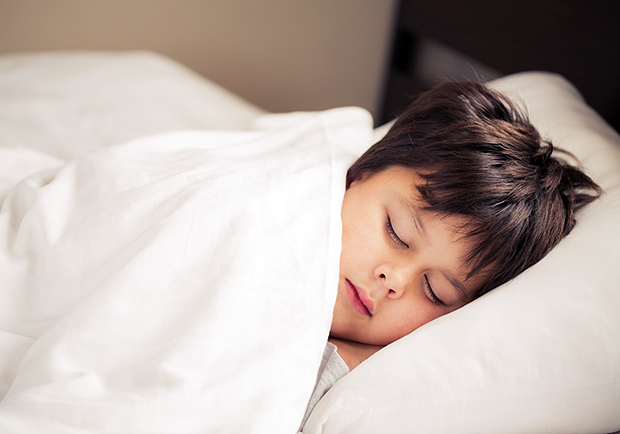How to Help Your Child Stop Bedwetting
Toilet training can be a difficult stage, but we have some helpful hints to help your child stay dry through the night.

If you recently got up in the middle of the night to change some soggy sheets because your child wet the bed, it may help to know that plenty of other moms and dads are doing the same thing.
Most children are toilet trained between 2 and 4 years old. But some don't stay dry at night until they get older. For instance, about 20% of 5-year-olds wet their beds, reports the American Academy of Pediatrics. And some kids still have accidents at age 7 or older.
Related: Help Your Child Deal with Bullying
Wet sheets aren't your child's fault. Many accidents happen when the body makes more urine overnight than the bladder can hold, and the child doesn't wake up to go to the bathroom. Chances are, your child's brain hasn't learned yet how to respond to the signal that the bladder is full. This response simply takes longer to develop in some kids than in others.
What you can do
Sometimes bedwetting can be a sign of stress, at home or at school, especially if a child has been dry for at least six months and starts wetting the bed again. And it might also be a sign of a medical problem, especially if it occurs with other symptoms such as a fever, pain with urination, or blood in the urine. In either instance, talk to your child's doctor.
Typically, though, kids who wet their beds have never been consistently dry at night. If that's the case with your child, try these steps—and tell your doctor if they don't help:
Ready your child
See that your child uses the toilet just before bedtime and doesn't drink large amounts of fluid before going to bed.
Rouse your child
Wake your youngster up at night to use the bathroom.
Try an alarm
A bedwetting alarm—available without a prescription—wakes children up when they start to urinate.
Be positive
Never scold your child for wetting the bed, and be sure to reward your child for dry nights.
While you’re here, check out our other healthy living articles.
Related: How to Communicate Better with Others
Select Health may link to other websites for your convenience. Select Health does not expressly or implicitly recommend or endorse the views, opinions, specific services, or products referenced at other websites linked to the Select Health site, unless explicitly stated.
The content presented here is for your information only. It is not a substitute for professional medical advice, and it should not be used to diagnose or treat a health problem or disease. Please consult your healthcare provider if you have any questions or concerns.
References: National Institutes of Health





